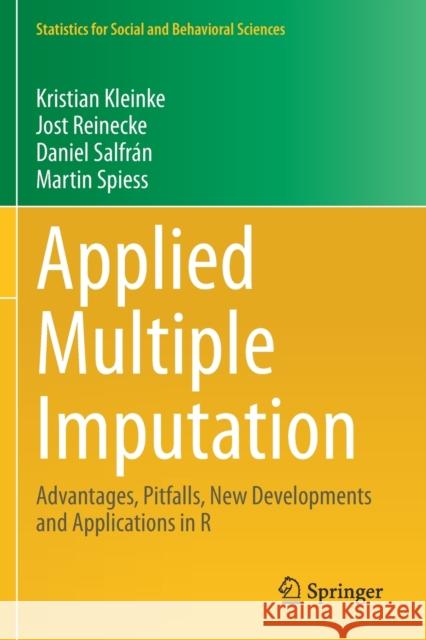Applied Multiple Imputation: Advantages, Pitfalls, New Developments and Applications in R » książka
topmenu
Applied Multiple Imputation: Advantages, Pitfalls, New Developments and Applications in R
ISBN-13: 9783030381660 / Angielski / Miękka / 2021 / 292 str.
Applied Multiple Imputation: Advantages, Pitfalls, New Developments and Applications in R
ISBN-13: 9783030381660 / Angielski / Miękka / 2021 / 292 str.
cena 261,63
(netto: 249,17 VAT: 5%)
Najniższa cena z 30 dni: 250,57
(netto: 249,17 VAT: 5%)
Najniższa cena z 30 dni: 250,57
Termin realizacji zamówienia:
ok. 16-18 dni roboczych.
ok. 16-18 dni roboczych.
Darmowa dostawa!
Kategorie:
Kategorie BISAC:
Wydawca:
Springer
Seria wydawnicza:
Język:
Angielski
ISBN-13:
9783030381660
Rok wydania:
2021
Wydanie:
2020
Numer serii:
000351227
Ilość stron:
292
Waga:
0.43 kg
Wymiary:
23.39 x 15.6 x 1.63
Oprawa:
Miękka
Wolumenów:
01
Dodatkowe informacje:
Wydanie ilustrowane











